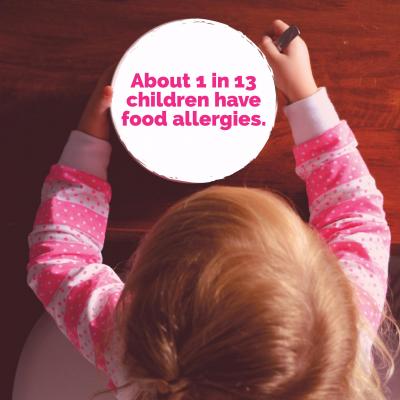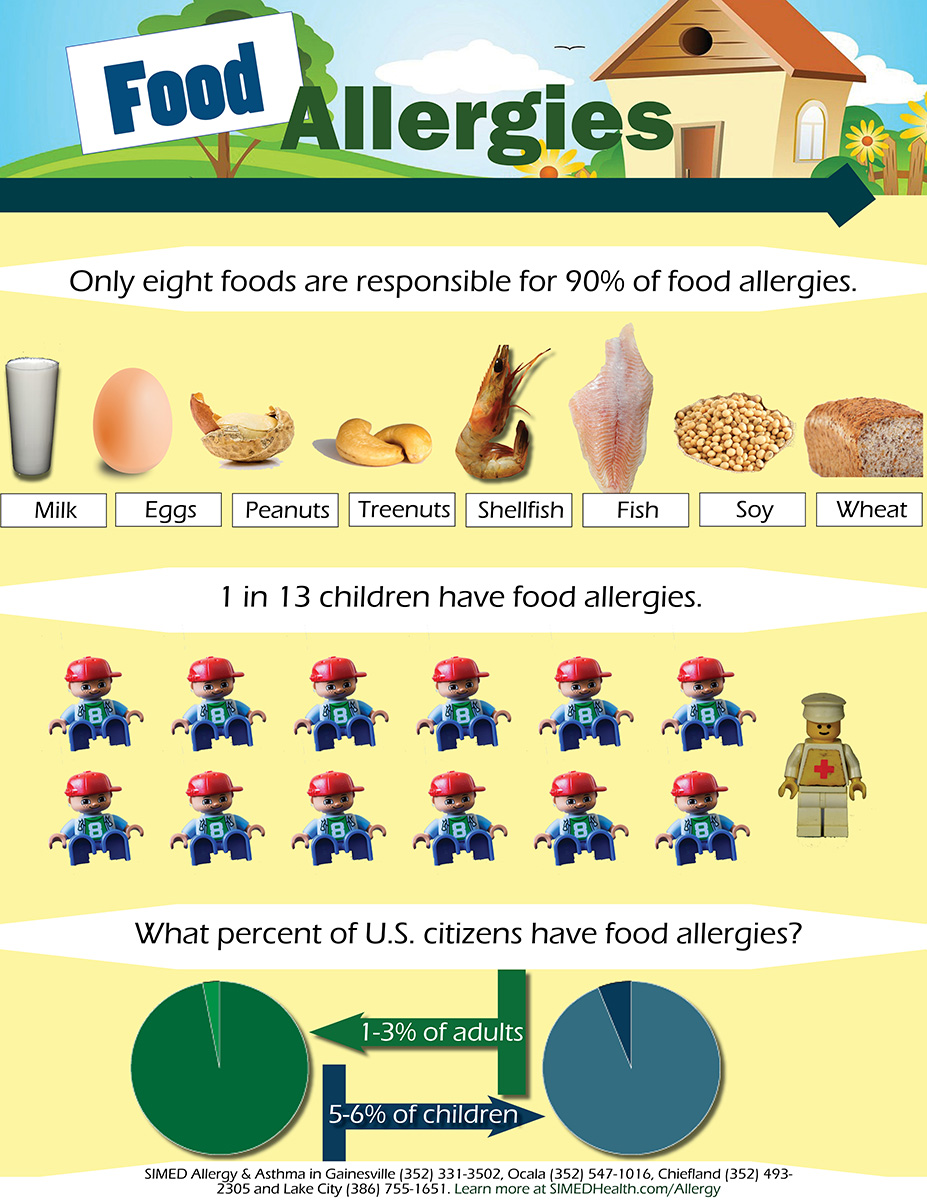
Should You Get Tested For Food Allergies?
Every three minutes, someone is sent to the emergency room because of a food allergy reaction, but what about less severe food allergy reactions?
Some symptoms of food allergies take place hours after the food is consumed, and many symptoms might not be easily recognized. We spoke with Dr. Mercedes Pernice, a practicing allergist and immunologist at SIMED in Lake City and Gainesville, to find out the details on food allergies.
Who gets food allergies?
While food allergies can occur in both children and adults, symptoms are more common in children.
According to Food Allergy Research and Education, about 15 million Americans have food allergies, including 1 to 3 percent of adults and 7 to 8 percent of children.
Sometimes children can outgrow food allergies like those to milk and eggs.
What are some of the symptoms of food allergies?
Food allergy symptoms range from mild to severe. While food allergies can sometimes cause fainting episodes, reduced consciousness and even death, more common symptoms include:
- Tingling
- Mouth Itching
- Mouth Swelling
- Tongue Swelling
- Generalized Hives
- Vomiting
- Diarrhea
- Gastrointestinal symptoms
In children, allergies can also manifest as eczema when food is eaten. Eczema is a condition resulting in red and itchy patches of skin.
What common foods trigger food allergies?
Specific foods more commonly trigger allergy symptoms.
These include:
- Milk
- Eggs
- Peanuts
- Tree Nuts (cashews, chestnuts, almonds, etc.)
- Shellfish
- Fish
- Soy
- Wheats
In children, eggs, milk and peanuts are the more common allergens. For adults, peanuts, tree nuts, shellfish and fish are the most common.
When should you or your child get evaluated for possible allergies?
You should see a doctor if you:
- Have symptoms or suspect you might have allergies, but you’re not sure what the trigger is.
- Can identify the trigger, but don’t know the severity or type of allergy.
- Have gastrointestinal symptoms or any concerns about food allergies.
It’s important for a specialist trained in the field, specifically an allergist, to evaluate you. A specialist can determine the cause and often limit or narrow down the possible triggers.
Allergy symptoms can sometimes be delayed for about two hours so it can be difficult to figure out what food you’re allergic to and if it’s even an allergy at all. In fact, a newly discovered meat allergy’s symptoms can be delayed up to four to six hours after the food is consumed.
Why should you or your child get tested?
It’s important to document the type of reaction because sometimes the reaction can be an allergy tolerance. An allergist will figure out if the symptoms are of true immune-related allergies or not because the symptoms are sometimes similar, and it’s important to differentiate. There are various types of allergies including those involving production of Immunoglobulin E (IgE) antibodies, gastrointestinal symptoms, delayed dehydration and protein intolerance.
Determining the type of allergy can help with treatment, determining the severity and preventing further episodes. If you get tested, you can also determine the source of the allergy.
Certain allergies can cross-react. For example, if you’re very allergic to pollen, you can react when eating a banana or watermelon, but if you cooked the banana, you wouldn’t have a reaction. Because different materials have similar protein components, your body and brain might think they are the same and react to a food even if you’re not allergic to it. When it’s cooked the protein is altered and your body won’t react. An allergist can identify potential cross-reactive situations.
How can I treat food allergy symptoms?
If the symptoms are mild like mouth itching or minor swelling, but you are still able to talk and swallow, you can treat your symptoms simply by taking Benadryl (Diphenhydramine). If symptoms are more severe like generalized hives, rashes breathing or swallowing difficulties, you would need an epinephrine injector that can prevent serious reactions.
If an episode is severe, call 9-1-1 for help and take the person to the closest urgent care center or emergency room.
Is there a way to avoid the symptoms of food allergies?
The best practice to preventing food allergies is to avoid consuming foods that trigger the allergies.
After you’ve been tested and know the cause of your allergies, you should read the labels in anything you eat and ask at restaurants if foods contain the allergen.
When you’re cooking in an enclosed space, sometimes you can inhale the vapors of the food you’re allergic to, so be cognizant about allergies and avoid going into busy kitchens where your potential allergen could be cooking. Your allergist at SIMED will provide you with education on how to deal with your allergies.
Think you might have allergies? Get tested and treated today at SIMED Allergy and Asthma. We have offices in Gainesville, Ocala, Chiefland and Lake City. You can schedule an appointment online or call:
- Gainesville (352) 331-3502
- Ocala (352) 547-1016
- Chiefland (352) 493-2305
- Lake City (386) 755-1651
To schedule an appointment with Dr. Pernice in Gainesville or Lake City, call (352) 331-3502 or request an appointment online.
Don’t forget to follow us on Twitter and Facebook for more content!
